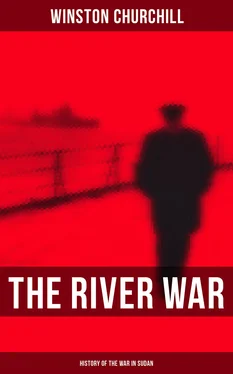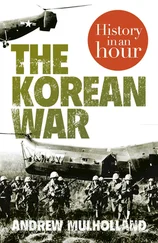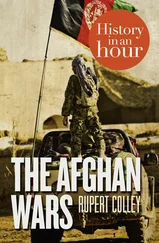Winston Churchill
The River War
(History of the War in Sudan)
Historical & Autobiographical Account of the Reconquest of Sudan
Published by

Books
- Advanced Digital Solutions & High-Quality eBook Formatting -
musaicumbooks@okpublishing.info
2018 OK Publishing
ISBN 978-80-272-4214-6
Chapter I: The Rebellion of the Mahdi
Chapter II: The Fate of the Envoy
Chapter III: The Dervish Empire
Chapter IV: The Years of Preparation
Chapter V: The Beginning of the War
Chapter VI: Firket
Chapter VII: The Recovery of the Dongola Province
Chapter VIII: The Desert Railway
Chapter IX: Abu Hamed
Chapter X: Berber
Chapter XI: Reconnaissance
Chapter XII: The Battle of the Atbara
Chapter XIII: The Grand Advance
Chapter XIV: The Operations of the First of September
Chapter XV: The Battle of Omdurman
Chapter XVI: The Fall of the City
Chapter XVII: 'The Fashoda Incident'
Chapter XVIII: On the Blue Nile
Chapter XIX: The End of the Khalifa
Appendix
Declaration Relative to the British and French Spheres of Influence in Central Africa
THE SOUDAN
--to illustrate the military operations--
1896-1898
|* Wady Halfa
/
(The Nile) /
_/
|
\_
/
| __* Abu Hamed
| _/ \
Dongola *\ _/ \ Suakin *
\ Merawi / \
\ */ \
\_ _ / \ Berber
\*
/\__ (The Atbara River)
_/ \_
Metemma */ \
/
|
Omdurman */
Khartoum*/\_
| \_
| \_ (The Blue Nile)
\ \
KORDOFAN \
|
(The White Nile)
Chapter I: The Rebellion of the Mahdi
Table of Contents
The north-eastern quarter of the continent of Africa is drained and watered by the Nile. Among and about the headstreams and tributaries of this mighty river lie the wide and fertile provinces of the Egyptian Soudan. Situated in the very centre of the land, these remote regions are on every side divided from the seas by five hundred miles of mountain, swamp, or desert. The great river is their only means of growth, their only channel of progress. It is by the Nile alone that their commerce can reach the outer markets, or European civilisation can penetrate the inner darkness. The Soudan is joined to Egypt by the Nile, as a diver is connected with the surface by his air-pipe. Without it there is only suffocation. Aut Nilus, aut nihil!
The town of Khartoum, at the confluence of the Blue and White Niles, is the point on which the trade of the south must inevitably converge. It is the great spout through which the merchandise collected from a wide area streams northwards to the Mediterranean shore. It marks the extreme northern limit of the fertile Soudan. Between Khartoum and Assuan the river flows for twelve hundred miles through deserts of surpassing desolation. At last the wilderness recedes and the living world broadens out again into Egypt and the Delta. It is with events that have occurred in the intervening waste that these pages are concerned.
The real Soudan, known to the statesman and the explorer, lies far to the south—moist, undulating, and exuberant. But there is another Soudan, which some mistake for the true, whose solitudes oppress the Nile from the Egyptian frontier to Omdurman. This is the Soudan of the soldier. Destitute of wealth or future, it is rich in history. The names of its squalid villages are familiar to distant and enlightened peoples. The barrenness of its scenery has been drawn by skilful pen and pencil. Its ample deserts have tasted the blood of brave men. Its hot, black rocks have witnessed famous tragedies. It is the scene of the war.
This great tract, which may conveniently be called 'The Military Soudan,' stretches with apparent indefiniteness over the face of the continent. Level plains of smooth sand—a little rosier than buff, a little paler than salmon—are interrupted only by occasional peaks of rock—black, stark, and shapeless. Rainless storms dance tirelessly over the hot, crisp surface of the ground. The fine sand, driven by the wind, gathers into deep drifts, and silts among the dark rocks of the hills, exactly as snow hangs about an Alpine summit; only it is a fiery snow, such as might fall in hell. The earth burns with the quenchless thirst of ages, and in the steel-blue sky scarcely a cloud obstructs the unrelenting triumph of the sun.
Through the desert flows the river—a thread of blue silk drawn across an enormous brown drugget; and even this thread is brown for half the year. Where the water laps the sand and soaks into the banks there grows an avenue of vegetation which seems very beautiful and luxuriant by contrast with what lies beyond. The Nile, through all the three thousand miles of its course vital to everything that lives beside it, is never so precious as here. The traveller clings to the strong river as to an old friend, staunch in the hour of need. All the world blazes, but here is shade. The deserts are hot, but the Nile is cool. The land is parched, but here is abundant water. The picture painted in burnt sienna is relieved by a grateful flash of green.
Yet he who had not seen the desert or felt the sun heavily on his shoulders would hardly admire the fertility of the riparian scrub. Unnourishing reeds and grasses grow rank and coarse from the water's edge. The dark, rotten soil between the tussocks is cracked and granulated by the drying up of the annual flood. The character of the vegetation is inhospitable. Thorn-bushes, bristling like hedgehogs and thriving arrogantly, everywhere predominate and with their prickly tangles obstruct or forbid the path. Only the palms by the brink are kindly, and men journeying along the Nile must look often towards their bushy tops, where among the spreading foliage the red and yellow glint of date clusters proclaims the ripening of a generous crop, and protests that Nature is not always mischievous and cruel.
The banks of the Nile, except by contrast with the desert, display an abundance of barrenness. Their characteristic is monotony. Their attraction is their sadness. Yet there is one hour when all is changed. Just before the sun sets towards the western cliffs a delicious flush brightens and enlivens the landscape. It is as though some Titanic artist in an hour of inspiration were retouching the picture, painting in dark purple shadows among the rocks, strengthening the lights on the sands, gilding and beautifying everything, and making the whole scene live. The river, whose windings make it look like a lake, turns from muddy brown to silver-grey. The sky from a dull blue deepens into violet in the west. Everything under that magic touch becomes vivid and alive. And then the sun sinks altogether behind the rocks, the colors fade out of the sky, the flush off the sands, and gradually everything darkens and grows grey—like a man's cheek when he is bleeding to death. We are left sad and sorrowful in the dark, until the stars light up and remind us that there is always something beyond.
In a land whose beauty is the beauty of a moment, whose face is desolate, and whose character is strangely stern, the curse of war was hardly needed to produce a melancholy effect. Why should there be caustic plants where everything is hot and burning? In deserts where thirst is enthroned, and where the rocks and sand appeal to a pitiless sky for moisture, it was a savage trick to add the mockery of mirage.
The area multiplies the desolation. There is life only by the Nile. If a man were to leave the river, he might journey westward and find no human habitation, nor the smoke of a cooking fire, except the lonely tent of a Kabbabish Arab or the encampment of a trader's caravan, till he reached the coast-line of America. Or he might go east and find nothing but sand and sea and sun until Bombay rose above the horizon. The thread of fresh water is itself solitary in regions where all living things lack company.
Читать дальше













